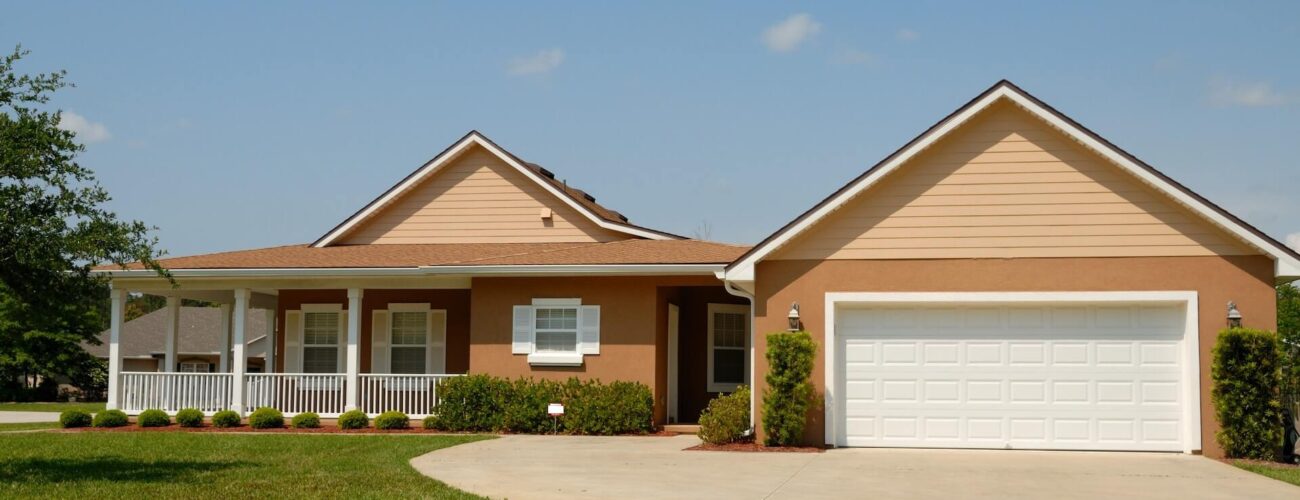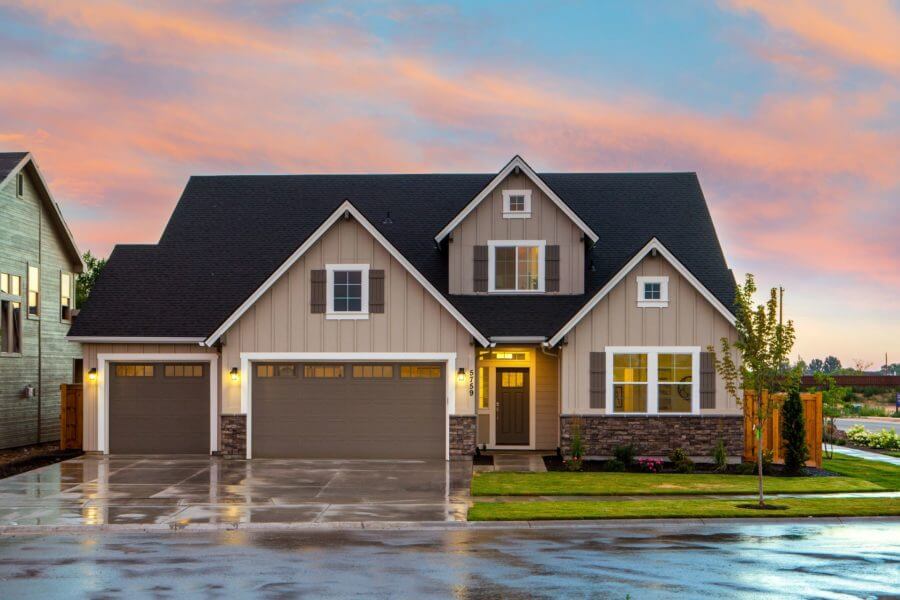

How to Navigate Living in the Suburbs
Posted in Coping With Relocation,How-to on September 30, 2022
Living in the suburbs isn’t everyone’s idea of a fun time, but suburban locations have numerous benefits, which more and more Americans are beginning to see and take advantage of. Here’s how you can navigate moving across the country to a suburb and get the most out of it.
You may not need the ultimate relocation guide for getting used to and relocating to a suburb, but for anyone that grew up and went to school in the city, surrounded by crowds and noise, that transition will require some tips. This blog can help you navigate unknown territories.
Is Living in the Suburbs Good? There’s Plenty of Pros, For Sure
What does it mean to live in the suburbs? We’re so used to TV representations of these areas that we imagine them to be like in Desperate Housewives – crisp and clean houses, polished housewives, busy husbands, and mischief everywhere.
It’s human nature to think there’s always something chaotic behind a calm facade, but suburbia isn’t that complex, nor is it completely boring. Most Americans now live in such neighborhoods, so they’ve come a long way from TV notoriety.
Here’s why you should choose suburbia for your next home.
A Massive Pro: Suburb Life Is More Comfortable
Why do people prefer to live in the suburbs? This should be simple – comfort. When you live comfortably, things are easier. There are no neighbors above or below you to be bothered by noise. You can practice music, dance, work out, and have pets.
These arguments make relocating to a new home much more appealing and motivating for you to decide where to live.
Another Benefit: Space for Every Family Member
When we think of suburbia, we think of only rows of identical houses in a perfectly polished street, but nowadays, these locations are so much more than that.
It isn’t just homes that are big here – apartments are, too. Whenever you find an apartment building, it’ll be in a calm area filled with parks and hangouts. And, if you move into an apartment building, that could be a lesser burden on your moving budget.
Homes and apartments in these parts of town are also bigger than in central areas, which makes sense. You can rent or purchase more for less without having to fight over some space and storage for yourself.
Life in America Is Now Predominantly Suburban Communities
Some of the best cities for millennials have more appealing suburbs than centers, so there’s no shame in looking for accommodation there. That big adventure will probably turn out better because you’ll have more space and less stress.
Yes, homes here are usually standalone houses in clean neighborhoods, but there are apartments and business buildings, too. These areas are no longer what they used to be – more and more Americans choose comfort and ease over crowded city areas.
If You Want Peace, Life in the Suburbs Is Ideal
What is the downside of living in the suburbs? We’re here to talk about the pros, but having peace can be a double-edged sword. If you move to another state alone and can’t figure out how to keep in touch with old friends or make new ones, the serenity of your neighborhood may just drive you insane.
It’s great, on the one hand, but boring on the other. Navigating quiet and peaceful places while you’re still young could take a toll. Still, there are always possibilities, like getting a car shipping service when relocating to suburbia and driving to look for fun when you get bored.
How to Navigate a Suburban Area – Take Walks and Stay Curious
If we can offer any long-distance moving tips, that’d be to explore as much as possible. There are many benefits to getting to know your new neighborhood when you first move in.
They range from getting to know your neighbors to feel more connected to the community and asking for help if you need it to discover businesses that can help support the local economy and make it easier to find the products and services you need.
Understanding the layout of your neighborhood can help you feel more comfortable and make it easier to get around. Of course, be respectful of others’ property and privacy, and be aware of your safety while getting to know the area.
Remember that getting to know a new place takes time, so be patient and enjoy the exploration.
Use the Time You Spend With Kids and Pets as Time of Learning About Your Neighborhood
If you feel weird walking around this part of the city alone, consider relocating with pets or adopting as soon as you move in. You’ll have enough space for you and your furry friend and an easier time adapting to the new environment.
If you take a walk with a dog, you’ll learn about parks and areas that allow pets; that can speed up the process of making friends in a new place. It’s kind of similar to relocating with kids. Not to say kids and dogs are the same, but having both will bring you similar benefits.
With children, you’ll also take walks and discover kid-friendly activities and areas near their school or your residence. That way, your little ones will make friends, and so will you. If you’re unsure where to start, the video below helps you learn how to meet new neighbors.
Join a Community or Activity That Suits Your Character
If you’re relocating for a love of the outdoors, joining a community nearby that goes on weekend hikes and camping will be the perfect start. Or, perhaps you’re really into gardening, so you find a group of neighbors to participate in meetups and exchange tips.
There are many great communities out there that can offer you a place to connect with people with similar interests. It can be tough to find the right one, but once you do, it can be an excellent resource for finding friends, advice, and support.
There are often local clubs or meetups in the area since folks want to have fun and build their hobbies and likes. In a sea of such activities, there must be one that could cater to your interests. Try searching online or in your local newspaper or magazine for listings, or when you get to know the neighbors, ask them for recommendations.
Once you’ve found a community that looks interesting, the next step is to join it. Most communities have rules for members, so read the guidelines before contributing. Be respectful and friendly, and enjoy getting to know the other members. You might become amazing friends one day.

Find a Home Near Places You’ll Potentially Enjoy and Feel Safe In
As mentioned, a love of outdoor activities and a preference for comfort are valid reasons for moving, but they’re also excellent house-hunting guides. If you want to move just near a national park or a hike-friendly mountain, our advice is to look for homes that suit those location preferences.
If you’re unsure of the criteria you need to apply to your house search, here are some general pointers people use when choosing a new home:
- Look for neighborhoods that have good schools,
- Make sure the area is safe,
- Drive around the area and see if it’s close to conveniences such as grocery stores and pharmacies,
- Time the commute from there to work to see if it will be manageable,
- Walk around the neighborhood during different times of day to get a sense of what life would be like there,
- See if any community events are happening that you could check out,
- Ask locals about their thoughts on the neighborhood,
- Do some research online to get a sense of what everyone’s saying about the area,
- Once you’ve narrowed it down, take some time to explore the area in person to see if it’s a good fit,
- Visit the area on different days of the week to get a well-rounded sense of what living there would be like,
- Trust your gut – if you have a good feeling about a neighborhood, it is probably a good place to call home.
Suburban Places Aren’t So Boring and Bland Anymore – Times Have Changed
There are plenty of benefits of relocating to suburbia, and if you don’t trust us, trust official research on trends in residential areas across America. Statistically speaking, around 52% of US residents call their neighborhood a suburb, as opposed to 27% who say they live in an urban area.
Findings of the Pew Research Center show there are far more suburban and metro areas across America than urban ones. Most US residences are single-family homes connected by roads to business centers and retail; this means you no longer have to worry about traffic speed and being away from cities.
Chances are, your neighborhood already has everything you need since so many of these communities developed into self-sufficient parts of town over time. You likely won’t be as bored as you imagine.

Before Starting a New Life in a Suburban Region, Spend Some Time There
Before you hire cross-country moving services and thoroughly plan a move to another city, consider how you could improve your future home. Will you make it more your own, or let it fit the mold all other houses possess? Will you dedicate more time to the front or the backyard? How will you commute from your home to wherever you need to go?
Considering all these things may fall into overthinking, but if you’ve never lived in suburbia and are afraid you’ll get depressed after the move, planning all of this might make things more comfortable to handle. Use sites like Pinterest to motivate your inner interior decorator, gardener, and local community participant.
There are a few ways to get to know a new place. One is to read about it beforehand. This can give you a good idea of what to expect and help you determine which areas would be best for you to live in.
Another way is to ask folks who already live there for advice. They can tell you about their experiences, perks, and disadvantages. Or, you can just explore the city on your own. This is a great way to get a feel for the different areas and find out which ones you prefer.
This Can Help You Prepare for Cross-Country Movers, Too
Knowing a place in detail before relocating is also an excellent way to prepare for the company and its long-distance movers. When headed to a new state and area, you should consider hiring movers for your moving cross-country adventure.
Movers aren’t just there to provide professional packing services or promise free storage service for a month. They’re also there to relieve your anxiety about relocating and help you start anew comfortably, without too much stress and tension.
Knowing how your neighborhood looks will be pretty significant to the movers, as you’ll know exactly where they can park; that will save them time and money in the long run.

Don’t Dismiss This Kind of Lifestyle Before Trying It – It Could Be Great
Suburbia can be a great place to live, but they do take some time. If you’re moving from the city or another rural area, there are a few relocation tips you’ll need to adjust.
Everything will likely be quieter and slower-paced than what you’re used to, but take that as a chance to rest and re-discover your interests. You may also find it harder to meet people and make friends, but if you’re patient and take the time to know your neighbors, you’ll eventually find plenty of opportunities.
Don’t worry about adapting to suburbia too much – you’ll be great at it.






